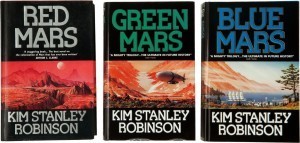As the Titles Pile Up, It’s Time to Share: Recent Great Books
 I’ve been on planes a lot lately, so I’ve been consuming books in a voracious way. In between flights I pepper talks with,
I’ve been on planes a lot lately, so I’ve been consuming books in a voracious way. In between flights I pepper talks with,
“and another book you MUST read is…”
I’ve done this so often lately that I decided to list a few here so I could more efficiently share my new discoveries. You will surmise correctly from this list that I am an eclectic reader. This will either make you think of me as a person with a wide range of interests or an eccentric who scans the world like an owl for a diversified meal of small prey after dark. Either way, this is not a boring list!
Among my new reads, must reads, is Resilience by Andrew Zolli. Andrew is the Exec Director of PopTech and a brainiac by any measure. This book is one of those “a ha” reads that illuminates the world while it puts words and pictures on your deepest intuitive knowledge. Resilience is wonderfully upbeat, and hopeful—it explains why in the midst of head-spinning change we are adapting, can adapt, will adapt, and maybe even get better. If you have not yet organized a family book club, this is the book that you might choose to launch one. A great read for anyone 15+, this is a book that will speak to each generation in a relevant and useful way. Download it before you get on that next flight.
Accidentally I read two books that, in the light of the Boston Marathon bombings, put a new light on war, random victims, and the implications for how cultures and communities are affected by the surreal dimensions of man’s inhumanity to man. The first of my accidental reads was a novel called The Book of Jonas by Stephen Dau. Jonas got up in the middle of the night to empty his kidneys in a privy well away from his main house, escaping as in a strange dream the horror of bombs obliterating his family, his home, his village. A young boy, he runs instinctively into the mountains and hides in a cave, only to meet up with one of the soldiers responsible for the bombing. Their encounter and their impact on one another and on the lives of people who cared for them is a reminder that war is the great unraveler—its impact trickles and pours from one person and place to another…guns, bombs, and drones, no matter how well “controlled” are indiscriminate in the damage they do. This book pushed my pragmatic self to the edge of a radical pacificism. Like the second accidental book, Escape from Camp 14 by Blaine Harden, I want to buy cases of these books and mail them to Congress (do we think those guys actually ever read anything that isn’t delivered as a poll or a review on their own behavior?).
Escape from Camp 14 was apparently first brought to the attention of the American public by 60 Minutes (I missed that episode). But the book surely brought North Korea to my consciousness in a whole new way. The book chronicles the existence of prison camps in North Korea that make Stalin’s Gulag look like summer camp—and it does this by following young Shin Dong-hyuk, as he escapes, impossibly, from Camp 14 and makes his way to China, South Korea, and eventually the US. I am embarrassed I was not more aware of the barbarity of North Korea—and it’s impact on our humanity.
I also finished Gillian Glynn’s Gone Girl. Fair warning: you will stay up all night to finish it. And Ellen Foster, by Kaye Gibbons, is the amazingly vivid and moving story of an 11 year old whose name is not really Ellen Foster—and therein lies the tale.
 Finally, lately I have gotten a number of requests for my favorite science fiction books (anyone who has heard me speak lately knows I am finally fessing up to the genre as one way I have kept my eye on weak signals from the future). At the head of the list is Kim Stanley Robinson (The Mars Trilogy: Red Mars, Green Mars, Blue Mars) whose stories contain remarkable scientific details. (May have something to do with his scientist wife, but in any event, he’s a brilliant writer). And now that the Mars Rover, Richard Branson, and Elon Musk are bringing Mars to our doorstep, his scenarios of terreforming Mars seem completely plausible.
Finally, lately I have gotten a number of requests for my favorite science fiction books (anyone who has heard me speak lately knows I am finally fessing up to the genre as one way I have kept my eye on weak signals from the future). At the head of the list is Kim Stanley Robinson (The Mars Trilogy: Red Mars, Green Mars, Blue Mars) whose stories contain remarkable scientific details. (May have something to do with his scientist wife, but in any event, he’s a brilliant writer). And now that the Mars Rover, Richard Branson, and Elon Musk are bringing Mars to our doorstep, his scenarios of terreforming Mars seem completely plausible.
I’m also a Neal Stephenson fan because he was the one who, for me, changed science fiction from ‘a distant planet, a thousand years in the future’ to “here” in the not so distant future. Cryptonomicon was the first book of his I read–it is a page turner and enormous fun. I went from there to Diamond Age and then Snow Crash. Both are dark but provocative. He has launched a new project I’m following with interest: http://en.wikipedia.org/wiki/Project_Hieroglyph
Of course Isaac Asimov and Ray Bradbury are the old classics—Asimov nailed the idea of singularity, which has entranced Ray Kurzweil all these years, and Bradbury was a much more philosophical thinker than most people understood. Shortly after Bradbury died, I shared a paper he wrote for USC’s management magazine in the late 80s, It’s a doozy and if you can’t find it, let me know. And Philip Dick has been so well discovered by Hollywood you hardly have to read him any longer, but I do like Do Androids Dream of Electric Sheep?.
Frank Herbert, who wrote the Dune series, got me paying attention to water issues long before I moved to California. And Mary Doria Russell’s book, The Sparrow is a very moving, very unusual take on science fiction. One of my favorite books, period. Wow, I could go on but this is already TMI. But check out our GoodReads website for titles we think are relevant to financial education in the broadest sense!



